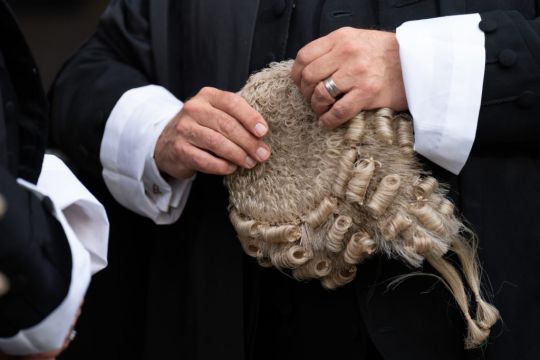The legislation setting up a new system for appointing judges has been upheld as constitutional by the Supreme Court.
Ms Justice Elizabeth Dunne in the Supreme Court on Friday said the President will be advised that he can sign the Judicial Appointments Commission Bill.
In his first ever referral, President Michael D Higgins identified 12 provisions for “special attention” by the court, which had 60 days to rule on its constitutionality.
The seven-judge court on Friday held that none of the provisions of the 2022 Bill are repugnant to the Constitution.
The court noted that the constitutional power and function of the Government is to advise the President to nominate a person for judicial office. The new process provided for in section 51 outlines that the Government will nominate an individual out of three put forward by a commission of four judges and four law representatives, plus the non-voting Attorney General.
The court rejected the argument that the Bill impermissibly interferes with the constitutional power of the Government by obliging it to act "only" on the recommendations of the commission.
There is “nothing express or implicit” in section 51 that requires the Government to nominate for appointment a person recommended by the commission, the court said.
In cases where only one person is recommended by the commission, the Government is still exercising a choice: whether or not to advise the President to appoint that person, the court held.
If the Government is not satisfied to advise the President to appoint this individual, the process of selection begins again.
Ultimate authority
The court said: “The ultimate authority of the Government to make the final decision as to who to appoint as a judge has been preserved in the Bill, and the Government is left with a meaningful choice as to accept or reject that list, or to choose between those on the list.”
The judges also held that the Bill sets out a sufficiently clear view of what constitutes merit in a judge and obliges the commission to implement that view in its selection criteria. The Government has not abdicated its power but conferred a degree of discretion that is constitutionally permissible, the court said.
If the Supreme Court had found one section of the Bill to be repugnant to the Constitution, the document would have fallen in its entirety. The court’s decision is final and cannot be revisited.
The decision follows two days of oral arguments for and against the Bill.
Attorney General Rossa Fanning, with Michael M Collins SC, Emma Synnot BL and David Fennelly BL, argued in favour of the legislation.
Mr Fanning submitted that it establishes a “robust and thorough” screening process for judicial applicants. The Bill “strikes the right balance”, having been drafted in such a way that the executive retains a “meaningful degree of choice” in appointing judges, he submitted.
Eoin McCullough SC, with Catherine Donnelly SC, Aoife Carroll BL and Francis Kieran BL, argued against the Bill, claiming it provided for an unconstitutional delegation of power.
The court was presided over by Ms Justice Elizabeth Dunne.







